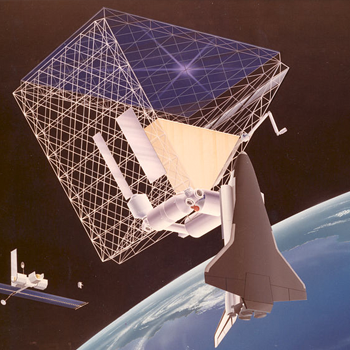Define #y=lim_(x->oo)(1+a/x)^x#. Now take the natural log to get #ln(y)=lim_(x->oo)x*ln(1+a/x)#. Now ignore the left side and focus on the right side. The right side can be rewritten as
#lim_(x->oo)(ln(1+a/x))/(1/x)#
You can try evaluating this limit by plugging in infinity directly. You'll get #0/0# which is indeterminate form. So apply L'Hôpital's rule and differentiate the numerator and denominator.
#lim_(x->oo)((1/(1+a/x))*(-a/(x^2)))/(-1/(x^2))=lim_(x->oo)(a/(1+a/x))=a#
So we have evaluated this limit, but remember this limit is equal to #ln(y)#. So solve for y to get the final answer.
#y=lim_(x->oo)(1+a/x)^x=e^a#



